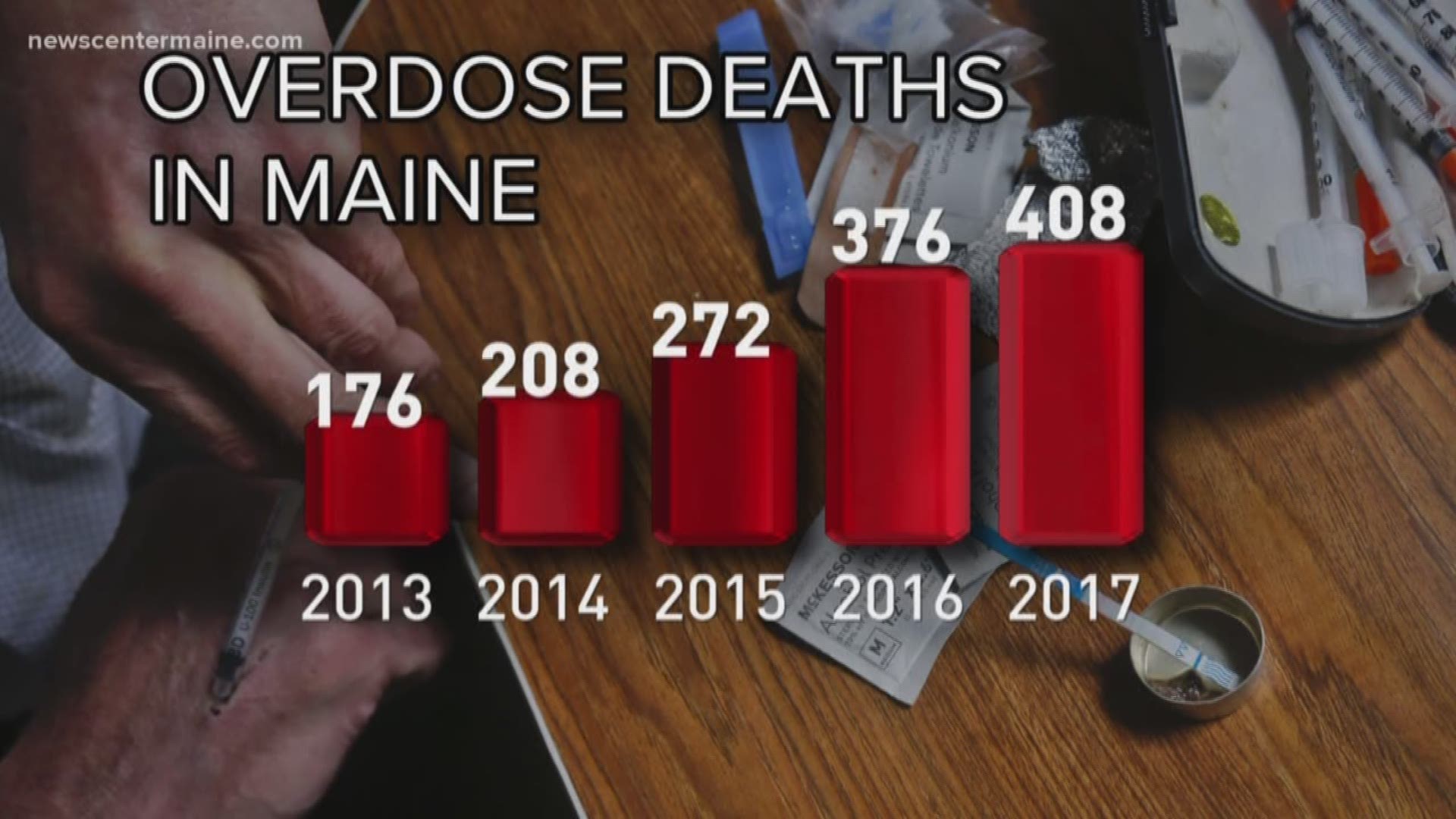AUGUSTA, Maine — Maine has seen a slight decrease in the number of drug-related deaths in 2018, as compared to 2017, but the opioid crisis in Maine is continuing to claim lives at a high rate.
The 2018 third-quarter drug death report found that from January to September, the total number of drug-related deaths was 282, down about 5 percent from the 297 deaths in the same period of 2017.
Fentanyl continues to be the leading cause of drug fatalities in Maine.
"Though we obviously welcome the slight reduction, the fact remains that the opioid epidemic is a public health crisis, which is tearing apart Maine families and communities," said Attorney General Aaron Frey in a statement. "Our office recognizes the urgency of this crisis, and I am committed to working in a collaborative manner with Governor Mills, the legislature, and all relevant agencies and community leaders to turn this crisis around by finding and implementing real solutions."
RELATED: Gov. Mills signs executive order on opioid epidemic
RELATED: Mills names medical association director to lead opioid fight
The report, complied by Dr. Marcella Sorg of the University of Maine's Margaret Chase Smith Policy Center, shows that at least 89 percent of the drug-related deaths in the third quarter of 2018 were from accidental overdoses.
Consistent with numbers from 2017, heroin caused 19 percent of the 2018 deaths through September. Cocaine or crack abuse appeared to be on the rise in 2018, causing 25 percent of deaths, as compared to 16 percent in 2016 and 22 percent in 2017.
Most of the drug deaths (81 percent) were caused by a combination of two or more drugs. On average, the cause of death typically involved three drugs, and 82 percent of these overdoses involved at least one opioid. Non-pharmaceutical fentanyl caused 61 percent of deaths, used either alone or in combination with other drugs.
Compared to 2017, deaths from non-pharmaceutical fentanyl in 2018 were slightly more likely to include other drugs, but less likely to include over-the-counter opioids. There was also an increase in 2018 in cocaine and methamphetamine deaths, since cocaine is being mixed with fentanyl and heroin more often.
The projected number of opioid deaths (both pharmaceutical and/or non-pharmaceutical) is down 13 percent for 2018 at 307 total, compared to a peak of 354 in 2017. The projected number of fentanyl deaths for 2018 is also down by six percent, at 231. The number of deaths by over-the-counter opioids is projected to see the greatest improvements, at a decrease of 29 percent, as compared to 2017 and 2016.
Dr. Sorg's report is attached below with more information:

